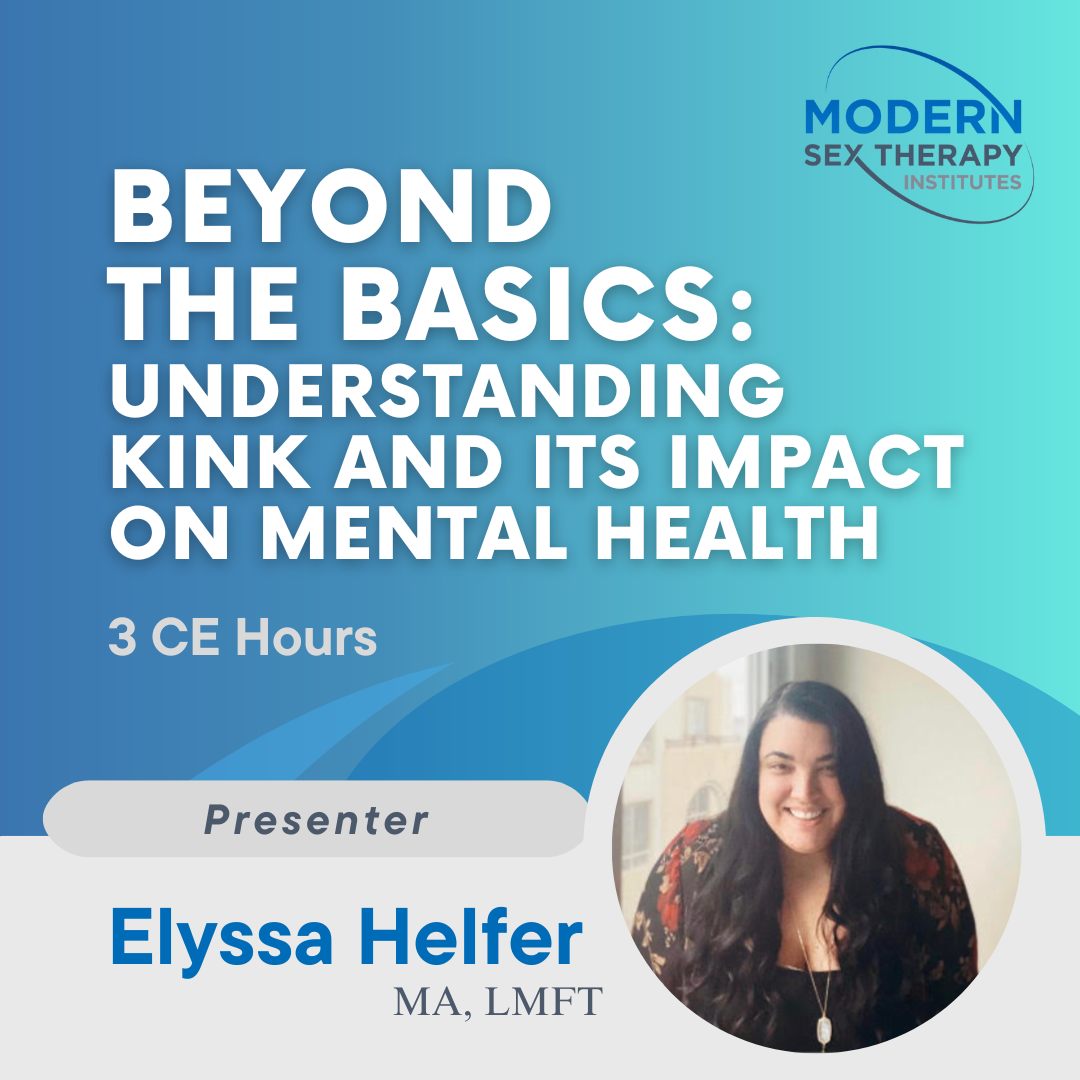Beyond the Basics: Understanding Kink and its Impact on Mental Health
$120.00
3 CE Hours
Presented by: Elyssa Helfer, M.A., LMFT
Recorded workshop available via video on demand
Through this course, participants will gain knowledge about the basics of kink, both from the lens of understanding kink identity and various forms of kink practice. By discussing the current debates within the kink therapist community and the kink community at large, participants will learn to approach clients from an informed perspective allowing for enhanced therapeutic connection and greater understanding. We will explore the various outcomes that can result from participating in kink and reasons for engaging in kink practice. Lastly, we will discuss the psychological consequences of experiencing negative therapeutic interactions based on conscious and unconscious bias towards the kink community and strategies to address them.
Learning objectives
- Explain mental health outcomes for living in line with kink identity
- Explain sexual and non-sexual BDSM
- Discuss personal and professional bias therapists have towards kink community
3 hour course
20 min- Kink 101
Who practices?
Profile of Kinksters- (research)
Kink terminology
Types of Dynamics (exploring various hierarchical structures)
Sexual v. Non Sexual BDSM
20 min -History
DSM changes
Shifts in kink perspectives
Kink development
Etiological theories
Psychopathological
Radical Feminist
Escape From Self
Psychoanalytic
Guilt Reduction Theory
Disinhibition Theory
Kink identity development- Samuel Hughes
20 minutes -Benefits/Consequences of kink practice
Individual mental health outcomes
Relationship outcomes
20 minutes- Current kink debates
SSC v. RACK v. 4Cs
Power Exchange v. Authority Transfer
Kink as identity v. Kink as leisure
20 Minutes- Healthy kink v. Abuse (Red Flags)
10 minutes-Play/Relationship Negotiation
Pillars of kink negotiation
25 minutes- Pathologizing Kink
Negative therapeutic interactions
Sources of kink shame
Strategies to address bias
20 min- Common issues in therapy/ Case Studies
15 minutes- Questions, discussion
Class originally recorded: 11/27/2020.
Social workers completing this course receive 3 general continuing education credits.

